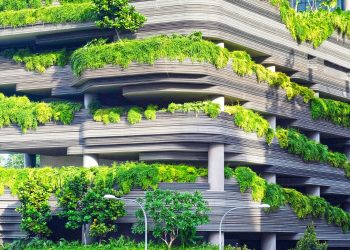Innovative Approaches to Sustainability Practices in Urban Development
What if the cities we live in were not merely places to reside, but living, breathing ecosystems designed to preserve the planet for future generations? This idea isn’t just visionary; it is a necessity. As urban areas expand, consuming resources and contributing to environmental degradation, the need for a paradigm shift becomes ever so imperative. My own experience growing up in a concrete-layered urban jungle taught me two key realities: our current model is unsustainable, and the potential for innovation is infinite.
Challenging Traditional Urban Wisdom
Conventional urban development strategies often prioritize speed and economic profitability over sustainability. This approach, while effective in rapidly creating infrastructure, is riddled with invisible costs—air pollution, loss of biodiversity, and environmental vulnerability. For decades, we’ve clung to the notion that technological progress can compensate for ecological loss, yet history has repeatedly shown that unchecked growth erodes the very foundation of human and environmental health. What if we flipped this logic upside-down and instead considered sustainability as the cornerstone for urban development?
Interdisciplinary Insights: Psychology, Philosophy, and Technology
Sustainability isn’t just an environmental issue; it’s also psychological and philosophical. How do people perceive their role in a shared environment? Research in psychology suggests that individuals feel more accountable when they sense their actions contribute to the greater good. Similarly, philosophers like Aristotle talked about the “common good,” an idea that echoes through the principles of urban sustainability. On the technological front, advancements such as AI-driven city planning and renewable energy systems provide practical tools that can transform these abstract insights into actionable strategies.
Imagining the Future of Urban Development
The cities of tomorrow will likely leverage cutting-edge technologies such as smart grids, autonomous transportation systems, and vertical farming models. Picture a world where skyscrapers are cloaked in greenery, absorbing pollutants and providing localized fresh produce to urban dwellers. Think of autonomous drones managing traffic patterns and streetlights powered entirely by renewable energies. The integrations of AI and IoT (Internet of Things) could facilitate optimized waste management, predictive models for environmental risks, and energy-efficient housing systems.
Practical Steps Forward
While imagining sustainable cities could be exhilarating, actionable steps are paramount. Here are strategies urban leaders might employ:
- Incorporate renewable energy sources like solar and wind turbines into new infrastructure projects.
- Promote mixed-use developments to reduce dependency on vehicles by enabling people to live, work, and shop within the same radius.
- Expand green spaces to improve air quality and enhance mental wellbeing.
- Educate residents about recycling and resource efficiency through community workshops and campaigns.
- Collaborate with scientists, engineers, and economists to create an integrated and future-ready urban planning model.
Metaphors That Bring the Concept to Life
Imagine urban development as a giant canvas. On its blank spaces, city planners paint with colors representing biodiversity, sustainable energy, and technological resources. Each stroke is a deliberate act, symbolizing the fusion of human ingenuity with ecological mindfulness. Alternatively, think of cities as interlinked domino pieces; tipping one irresponsibly jeopardizes the whole system, while stable, interconnected planning ensures overall wellbeing.
Continuous Learning Matters
Sustainability is not a finite goal but a continuous process requiring lifelong learning, adaptability, and innovation. Drawing inspiration from lifelong learners such as Buckminster Fuller, who pioneered ideas in sustainability through interdisciplinary thinking, urban planners must see themselves not as architects of today but as creators of tomorrow.
Encouragement and Call to Action
The future starts with each of us. Whether it’s advocating for sustainable policies or adopting eco-friendly habits, the smallest actions can lead to seismic shifts. Urban sustainability doesn’t have to be a paradox—it can be the standard. Step forward, inspire change, and be the architect of a resilient future. The world is watching, and the time to act is now!











